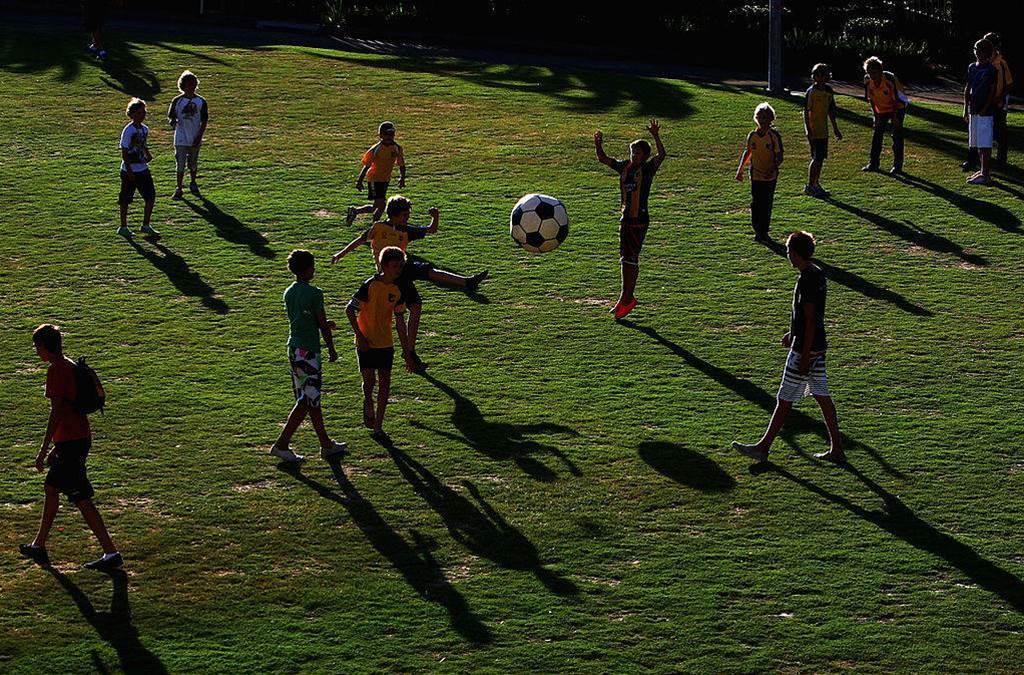An effective state and national policy platform targeting all government levels for infrastructure funding will be urgently needed over the coming years as grassroots football and the A-League and W-League align, while a Women’s World Cup looms.
Football at grassroots and the A-League is on the precipice of a rebirth.
FFA CEO James Johnson and his A-League executives have now signaled a clear intent to reposition football's calendar over the next two years.
This will align football in Australia with Asia and bring all levels of the game together, from the A-League and W-League down.
And with Fox Sports' broadcast deal winding down, many believe a streaming solution could be found for the A-League to own its own content, further strengthening the game.
Meanwhile, the continuing spike in women’s football numbers is set to explode if, as many expect, Australia and New Zealand are awarded the hosting rights to 2023 Women’s World Cup later this week.
JAPAN EXITS 2023 WWC BID
This all means one thing.
Significant investment in infrastructure funding at local, state, and federal levels will be required to keep up with the game’s rebirth over the next decade in a post-COVID Australia.
All levels of government will be under pressure to provide infrastructure funding for adequate facilities for the expected explosion of playing numbers.

Infrastructure funding has been a key plank for other codes to grow.
And right now infrastructure funding is a key issue given the recession about to hit Australia due to the economic devastation wreaked by COVID-19.
Prime Minister Scott Morrison today announced a $1.5b infrastructure funding plan for ‘shovel ready’ projects, accelerating infrastructure projects worth more than $72 billion in public and private investment, and supporting more than 66,000 direct and indirect jobs.
INFRASTRUCTURE FUNDING IS BEING FAST-TRACKED TO HELP CREATE JOBS
Peter Filopoulos, CEO of Football Victoria, told the ABC last year that infrastructure funding is desperately needed: “the data doesn't lie and we have now reached crisis point in terms of access to facilities and infrastructure to be able to cope with the demand.”
A Women’s World Cup will only add to these numbers, hence the need for an urgent and coordinated infrastructure funding policy across the nation.
In fact, Football Victoria has launched a proposal to establish the Home of Football for the Matildas, following interest from a number of municipalities across the southern state to potentially host the facility.
What's more, last year Football Victoria (FV) estimated that in just 10 months their government policy platform unlocked $118 million in infrastructure funding.
“Based on participation growth we’re expecting over the next eight years and population growth, the facilities strategy went municipality to municipality,” Filopoulos told FTBL in 2019.
“And based on growth predictions, we saw we’d be short 420 full-size pitches by 2026. So that really started a whole narrative with the government. They realized they had a problem here.
FOOTBALL VICTORIA'S INFRASTRUCTURE FUNDING POLICY HAS BEEN A SUCCESS
"And we could support that with data such as 12,500 boys and girls missed out on an opportunity to play the game because facilities at clubs had reached saturation point."
The A-League must also take advantage of any available infrastructure funding by formulating a compelling national policy.
CHECK OUT THE OFFICIAL A-LEAGUE SITE HERE
Additional infrastructure funding for training facilities may be required for those A-League clubs who share facilities with NPL clubs (for say, youth league, and W-League teams).
And there will be a need for infrastructure funding for boutique A-League stadia upgrading or building from scratch, as the A-League looks for alternative venues during the busiest usages times of the year between March and November.

The winter idea has been warmly received, though it’s sparked a fierce debate with pundits, fans, and journalists on Twitter.
Some say it won't have an impact on the A-League, others argue a change needs to be made.
"We're very positive that this could be something very good for us to be able to really engage with grassroots in their season.
"It does allow us to really get going with the A-League, get going as a club and allow us to help build and grow participation numbers and connect with the grassroots,” Central Coast Mariners CEO Shaun Milekamp said this week.
Related Articles

Leckie seals new marquee deal as Good, Maclaren head to Asia

'Timing not right': Montemurro's verdict on Matildas vacancy


.jpg&h=200&w=300&c=1&s=1)











